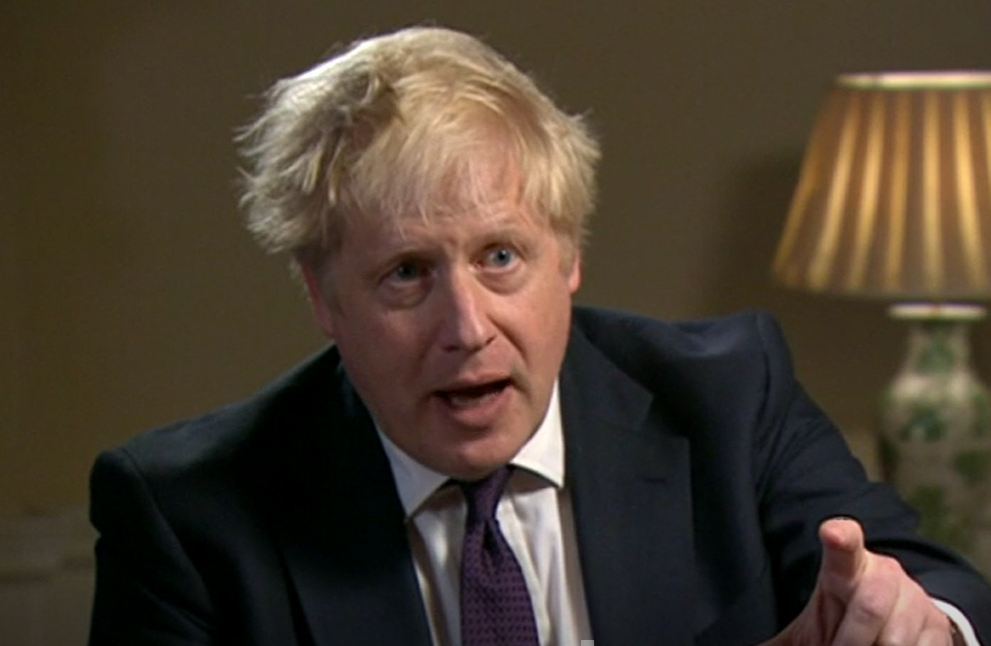Boris Johnson’s conference speech will be similar to Starmer’s – but he can deliver
The Conservative leader will likely offer more enthusiasm and conviction, and a plausible version of Labour’s vision


One of the themes of Keir Starmer’s conference speech was that the country was at a crossroads. Or a fork in the road. Actually, this time it was “a government lost in the woods with two paths beckoning”. Anyway, it faced a choice. It could go back to “slow and steady decline” or it could take a different path that learns from the Covid crisis and “leads to a future in which a smart government enlists the brilliance of scientific invention to create a prosperous economy”.
I can exclusively reveal that one of the themes of Boris Johnson’s conference speech will be exactly the same, not least because he said so in an interview this morning. “The choice is very clear for the country. Do we go forward with steady improvements in productivity or back to a policy of low wages and low skills?”
Or, at least, it sounded the same until you got to the end of the prime minister’s sentence because what he actually said to The Times was: “... back to a policy of low-wage, low-skilled, uncontrolled immigration.”
While Starmer is offering a vision of the white heat of the technological revolution – I mean, “the brilliance of scientific invention” – that will raise earning power and living standards, Johnson is offering something more specific. He is offering labour shortages as a deliberate instrument of policy that will bid up wages now that companies can no longer import cheap unskilled labour from the rest of Europe.
It is a bold attempt to turn a negative into a positive. The government ought to be embarrassed by petrol shortages and a UK-wide call for anyone who can drive a lorry – including German bankers whose old driving licences permit them to drive light vans – to present themselves at the nearest recruiting office. But the unembarrassable prime minister says that this is a good thing because it means British workers will be paid more.
Never mind that economists, including Rupert Harrison, the former chief economic adviser to George Osborne’s Treasury, point out that there is no such thing as a free lunch, and that if some groups of workers are paid more, someone, usually their customers, will have to pay for it.
What matters is that Starmer and Johnson agree that low-wage workers ought to be paid more. But Starmer said next to nothing in his conference speech about how this could happen. He and his party are still only able to mention Brexit in a not-quite-suppressed argument with half of the British people: it was the cause of the lorry driver shortage; it wasn’t the cause of the early rollout of vaccines…
Starmer’s speech bravely referred to Brexit, saying that a Labour government would “make Brexit work”. Can he not hear how that sounds to people who voted to leave the EU? “You made a catastrophically bad decision, which I fought to reverse, but if I am prime minister I will try to minimise the damage as best I can.”
So whether it is true or not that ending free movement will push up low wages in Britain, Labour cannot say so. Hence the significance of demands at the Brighton conference to raise the minimum wage – a non-Brexit mechanism to achieve the same end. Yet Starmer didn’t mention the minimum wage in his speech, except in his list of the achievements of the last Labour government. He couldn’t mention it because he was too busy ignoring the demands of his activists and some trade union leaders who should know better for an impossibly high minimum wage of £15 an hour – higher than the wages currently earned by half of all British workers.
The Labour Party has not yet begun to understand the seriousness of Boris Johnson’s intent. The whole Labour conference was dominated by the assumption that, once Tory voters realise that Brexit isn’t working and that the Tory government is responsible for empty shelves, closed forecourts and higher energy bills, they will come back to Labour.
They will not. This government is indeed in the woods, with two paths beckoning. One does indeed lead back to “austerity” and a country that looks after the rich, just as Starmer said it did. The other does lead to a better life for “working people”. But that is the choice that the prime minister will offer in his speech in Manchester on Wednesday. And he will offer to lead the people out of the woods down the same path that Starmer was suggesting, rather tentatively, that they should take.
He will do so with more enthusiasm and conviction than Starmer could. And he will be able to do so without Conservative members in the hall shouting at him, allowing him to claim that it is his party rather than the opposition that is aligned with the people of Britain.
Anyone who thinks that the Conservatives are going to reveal themselves over the next few days as small-state Thatcherites who want to cut people adrift to fend for themselves has not been paying attention. This is a government that is putting up taxes to pay for public services as the Labour government did.
This is a chancellor, often lazily labelled a Thatcherite, who promised to use the “overwhelming might of the state” to protect people. And this is a prime minister who wants the wages of the low-paid to rise and who has a plan for how that will happen. Labour has been outflanked on its own ground and has not yet even realised it.
Join our commenting forum
Join thought-provoking conversations, follow other Independent readers and see their replies
Comments
Bookmark popover
Removed from bookmarks